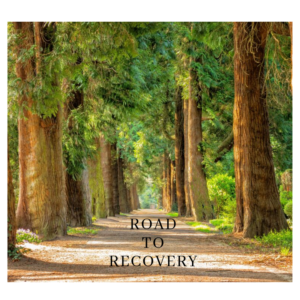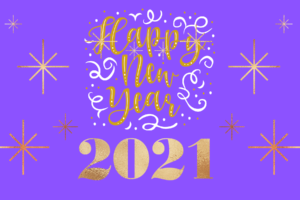
What Recovery Means to Me
Sometimes other people with Functional Neurological Disorder will ask me, “So, are you back to 100% then?”. If that means I am back to the hard-driving, multi-tasking, “Wonder Woman” of my pre-FND days, then no. That isn’t something I would want even if I could have it. Of course there are things that I miss about the old me. Having more energy is definitely on my wish list.
At my worst point with FND, I couldn’t walk or talk. Now I can. Mobility and communication are so essential to living an independent life with minimal restrictions that my recovery of those functions leads me to my claim of recovery from FND. It doesn’t mean that I have no limitations. We all have limitations, even people in “perfect” health.
I stopped driving for a period of about 6 years because of problems with processing everything going on around me. After I had embraced my FND diagnosis and started regaining function, I wanted to start driving again. Safety is my top priority, so before getting behind the wheel, I had a driving assessment done. A local neurology center offered a computer based screening to determine neurological impairment related to driving skills, so I started there. I fully expected to pass it since it was such a basic screening, but to my surprise the test showed significant neurological impairment. They recommended that an on-road test be done to further assess my driving ability. On the road, my instructor felt that my skills were adequate. He told me that we can reduce our risks of a crash by limiting the types of conditions in which we allow ourselves to drive. We decided that I would limit my driving to daytime, good weather, familiar routes, and roads with lower speeds and low traffic volume. With these restrictions, I can accomplish almost anything that I want to do. I run errands during the weekdays and close to home. Compared to my days of not driving at all, I feel a great sense of satisfaction and autonomy. No, I probably won’t ever drive on busy highways again, but that’s fine. I prefer to embrace what I can do over what I can’t. To me, that’s recovery.
I desperately miss the career I had as a pediatric physician assistant. Providing medical care to children was a dream I had had since my own childhood. As much as I would love to do that again, I know that it’s not a good idea for me or for patients. Fatigue and brain fog set in too easily with my FND brain and I don’t function as well in stressful situations. Just like I’ve given up on the goal of returning to the body shape I had when I was 20, I have accepted that my younger, stronger brain won’t reappear either. It doesn’t make me any less of a person to not be working right now. Maintaining my recovery means that I have to have a schedule flexible enough to rest whenever necessary. Blogging has filled a need I have to be productive and offer something to others while allowing me to keep my health as my top priority.
When we are able to accept our limitations, yet create a life that is fulfilling and has purpose, that is recovery. I look at my recovery similarly to people navigating a recovery from substance abuse. Recovery to those folks doesn’t mean that they can go back to their old lifestyles. Self-awareness is critical for all recovery. Every day is a new challenge to live a life free from old damaging habits and thought patterns. Recovery from Functional Neurological Disorder for me means that it’s essential to live as peaceful a life as possible. It means that I need to constantly be aware of my physical and emotional states and make adjustments when necessary. Managing my FND means that I have to stay vigilant about the things I tell myself.
Staying in the zone that is best for my health means that I have to know how to say “no” at any time. When I become aware that my body is approaching its limit, I have to stop, no matter what I’m doing. Pushing through exhaustion will result in my body breaking down, guaranteed. Some people might believe that living a life with restrictions isn’t really recovery. I would argue that recognizing the signals my body sends me and responding appropriately to prevent loss of function IS recovery. None of us has a body that can function indefinitely without rest and nourishment. No matter who you are, at some point your body will give out if pushed beyond its limits. With FND, our limits come sooner than for most people. We can bemoan that fact and feel that we are powerless to enjoy our lives, or we can recognize that we have a limited energy budget and carefully guard how we use it. I am very selective about the things I choose to use up my energy. Time with my precious granddaughter? Yes! My favorite way to spend my energy! A crowded party with lots of noise in the evening? No thanks. I might have enjoyed that at one time in my life, but now the drain on my brain is not worth it.
Whatever your situation, FND or not, living life purposefully and mindfully brings its rewards. I will never return to the person that I was, but I prefer the person that I am now anyway. FND has brought plenty of trials and I wouldn’t choose it or wish it on anyone, but it has also brought me a new appreciation for life. Most people don’t think about it when they walk down the street, but I am in awe of every step I take. I may not ever conquer a fourteener, as the more than 50 beautiful peaks in Colorado over 14,000 feet are called, but I now routinely hike for several miles in pine forests and I’m thrilled with that. Losing function, then regaining it means that I take nothing for granted. In the past my bar for feeling a sense of accomplishment was too high. Anything less than excellence felt like failure in the “old me” days. Now, I marvel at the complexity of the simplest of tasks I am able to perform. My bar to measure success is pretty low now and I am a happier person because of it. I’m not sure I would have been able to give up my old standards had I not experienced what it was like to be incapacitated.
Do I have everything about FND figured out? Not in the slightest. Every day I learn something new. I don’t know if I will lose function again some day, but I’m doing my best to prevent that. Healing is a journey without a final destination. We never reach the point of knowing everything and performing perfectly. Thank goodness! How boring would it be if we had nothing new to learn?
Every day is a new adventure. Love the life you have, no matter your limitations. Even if you can’t do everything you would like to, what can you do that you enjoy? How can you make life better for someone else today? Take a step towards embracing a meaningful life. Every step you take in the direction of healing is a step towards wholeness, no matter what functions your body can perform.
Wishing you wholeness,


7 Comments
This article is very informative. I wish you well on your journey. Thanks for sharing!
I applaud your outlook and positivity! Most of us overlook the magnitude of what our bodies do for us. It is only right, and necessary to listen and give our bodies what they need. Much love and light to you on your journey.
Thank you, Robin!
As I read this, I feel like these are MY words. This is exactly how I feel, yet find it difficult to explain to others. Thank you for so eloquently putting to words where you are at with FND. I am at that same place. I don’t want to be that person I used to be. I’m thankful to be able to appreciate LIFE. And I enjoy being a ray of sunshine for others who struggle. Do I struggle too? Of course I do. Every day is a new adventure. My attitude helps me embrace that adventure. When I say I’m doing great, I really am. Some people just don’t seem to understand that I can be doing really well when my brain and body are causing limitations. Perhaps I will share your post to help spread better understanding of FND. Thank you so much for your words.
Thank you so much for your comment, Cyndi! Yes, please share with others. FND has been misunderstood and maligned for far too long. It’s time we stand proud for who we are and how we are able to thrive in the face of limitations. Best of luck to you as you continue on your journey!
Thank you for this, particularly your comments about what recovery means to me and also the page on The Zone of Healthy Function. I found these resonate the most with my current situation.
Best wishes
Elaine
Thank you for the encouragement, Elaine! Best of luck to you on your journey.
Max